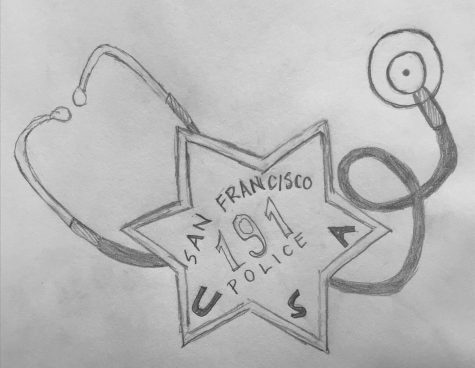COVID-19 pandemic upends frontline worker families.
As the COVID-19 pandemic continues to disconcert and upend families across the globe, essential workers bear the heavy weight of worries as they stand on the frontline of the pandemic.
The world is settling into a new normal, yet for frontline workers, there’s no relief. Frontline workers continue to serve their communities tirelessly, risking not just their own health, but also the health of their families. Additionally, new scientific studies and research about SARS-CoV-2 are constantly being released, and workers must learn to quickly adapt to new information to protect their families from the virus.
In a study done at Stanford University, a reported 42% of workers are now working from home, those mostly being workers in finance, law, marketing, insurance, technology and other white-collar office jobs. Healthcare workers throughout the country have been stretched thin. Residents and fellows have often been redeployed to intensive care units and the emergency room to help battle the pandemic rather than partake in elective rotations.
Similar to healthcare workers’ experiences, other frontline workers are also being moved to different areas of their work. Morgan Bandy ‘23 said her dad, Riley Bandy, who is an SFPD police officer “has felt incomplete” during the pandemic because “he doesn’t feel like he’s doing enough of his job as a police officer.”
Although some healthcare professionals are able to do telemedicine because of their specialties, those who are most affected emotionally and physically are healthcare workers who can only work in the hospital such as nurses, doctors, and technicians.
Emin Maltepe, a neonatologist at UCSF said, in an interview with The Urban Legend, that even though healthcare workers signed up to protect and treat people, “no one was ever trained mentally to be prepared for [a pandemic], so it’s been a huge challenge we’ve all had to face.” Maltepe’s specialty requires him to work hands-on, constantly running the risk of getting COVID-19. Although other essential workers must also be frontline facing, “people outside of healthcare don’t really understand the level of personal and family stress that people working in hospitals and clinics have had to endure this past year.”
Frontline workers outside of the healthcare industry have also had to follow certain safety measures to protect themselves. Bandy says that her family has had to take many precautions during the pandemic to ensure their safety. “My dad always has to make sure that he’s fully sanitized before coming in the house, he always changes out of his uniform and the clothes he went to work in, to minimize the risk of bringing something home.” Frontline workers across the globe have had to face a troubling reality as they constantly run the risk of infecting their loved ones. In response, hotels across the country have opened up to healthcare workers for discounted rates so those exposed to SARS-CoV-2 have a place to quarantine away from their families.
“I have quarantined multiple times, for up to two weeks at a time away from my family,” Maltepe said, “just to make sure that I didn’t develop symptoms, and didn’t risk taking the virus back to my family as an asymptomatic carrier.” Although quarantining away from one’s family creates an emotionally isolating experience for healthcare workers, it is still considered the most foolproof way of minimizing the exposure risk. Early in the pandemic, the vectors of transmission were virtually unknown, including the incubation period and infectivity rate of SARS-CoV-2. Therefore, many healthcare workers who have to work in hospitals chose to take more conservative approaches with their risk mitigation.
The pandemic has also paid an emotional toll on frontline worker families. Bandy says that the worries and paranoia effect “[the rest of her family’s] mood swings when they’re all at home,” however, she recognizes that in order to make it through the pandemic, they’ve had to “try [their] best to stick together.” Finding support systems for these extraneous circumstances has proven to be an additional layer of challenges for some.
“We’ve all just been expected to cope on our own and find our own support networks,” Maltepe said. Even if there have been efforts to create support groups through hospitals and other medical workers, Maltepe said, “everyone’s so busy doing their jobs” so that healthcare workers do not have the time to find third party pillars of support.
Additionally, finding sympathy from the public has been taxing. “Journalists haven’t done a very good job of covering the pandemic, particularly the experiences of frontline workers,” Maltepe said. “We don’t have the time to educate the public about what we’re going through.” With the plethora of information both from published scientific studies and articles on the pandemic, Maltepe said that “it’s made it difficult for [him] to understand why people are so unwilling to do something as simple as wear a mask and even how it becomes so political.”
As the pandemic continues, hospitals await the surge in cases from the holidays. Having lived through the pandemic as both a healthcare provider and as someone who has had family members contract the disease, Maltepe presses the severity of the life and death situations he has had to face. “The two experiences have served to reinforce my understanding of the absolutely devastating nature of this current pandemic. Don’t underestimate this virus, it can happen to anyone.”



